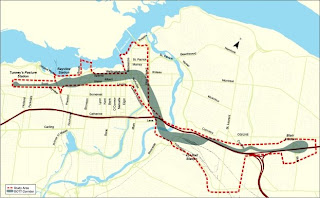
The Student Federation of the University of Ottawa (SFUO) is circulating these postcards in both English and French. They are available at the student union's front desk and are being sent to Mayor Larry O'Brien. Notice the polite reminder about the
U-Pass at the bottom.
The text on the back reads (in English):
As a University of Ottawa student, I rely heavily on public transit to get to school and work daily. This transit strike has left students out in the cold, especially during exam season. I am writing you to ask that you go back to the negotiating table with OC Transpo workers (ATU Local 279). Let's end this strike and enjoy our holiday season.
Sincerely,
University of Ottawa student
UPDATE: In an interview with Public Transit in Ottawa, SFUO President Dean Haldenby expressed concerns with both the City and the union. At the end of the day, he said, the SFUO simply wants the strike to come to an end.
But when asked about some of the language used on the postcards pictured above, Haldenby said the SFUO has a lot of sympathy for the union's cause.
At the end of another post on this website, a commenter asked how students could support the union, given that it has disrupted many of their lives.
Haldenby was succinct in his response.
"The City is mistreating the union, just like they mistreated us with the universal bus pass," he said, referring to
council's shelving of the U-Pass last month.
The story is a bit more complicated. As noted in another post, Amalgamated Transit Union international vice-president Randy Graham had this to say to
CBC News before both the University of Ottawa and Carleton University began operating private shuttles:
"Most of the bus companies would never ever do anything that would be scabbing our members ... We'll have to deal with it if it does occur. We have to do the things that we legally can do. And we will do it."
That kind of comment left some wondering what might happen if the shuttles did run. But they commenced operations and nothing happened. Haldenby said the union understood where the student unions were coming from.
"We told them that their battle was not with the students, but with the city," he said. "We explained the very specific reasons that we needed to run the shuttles -- for exams -- and ... they gave us the go-ahead."
When asked about what might happen if the union hadn't given the students "the go-ahead", Haldenby said he didn't want to comment on hypothetical situations. He added that the union never threatened any action against the SFUO.

















